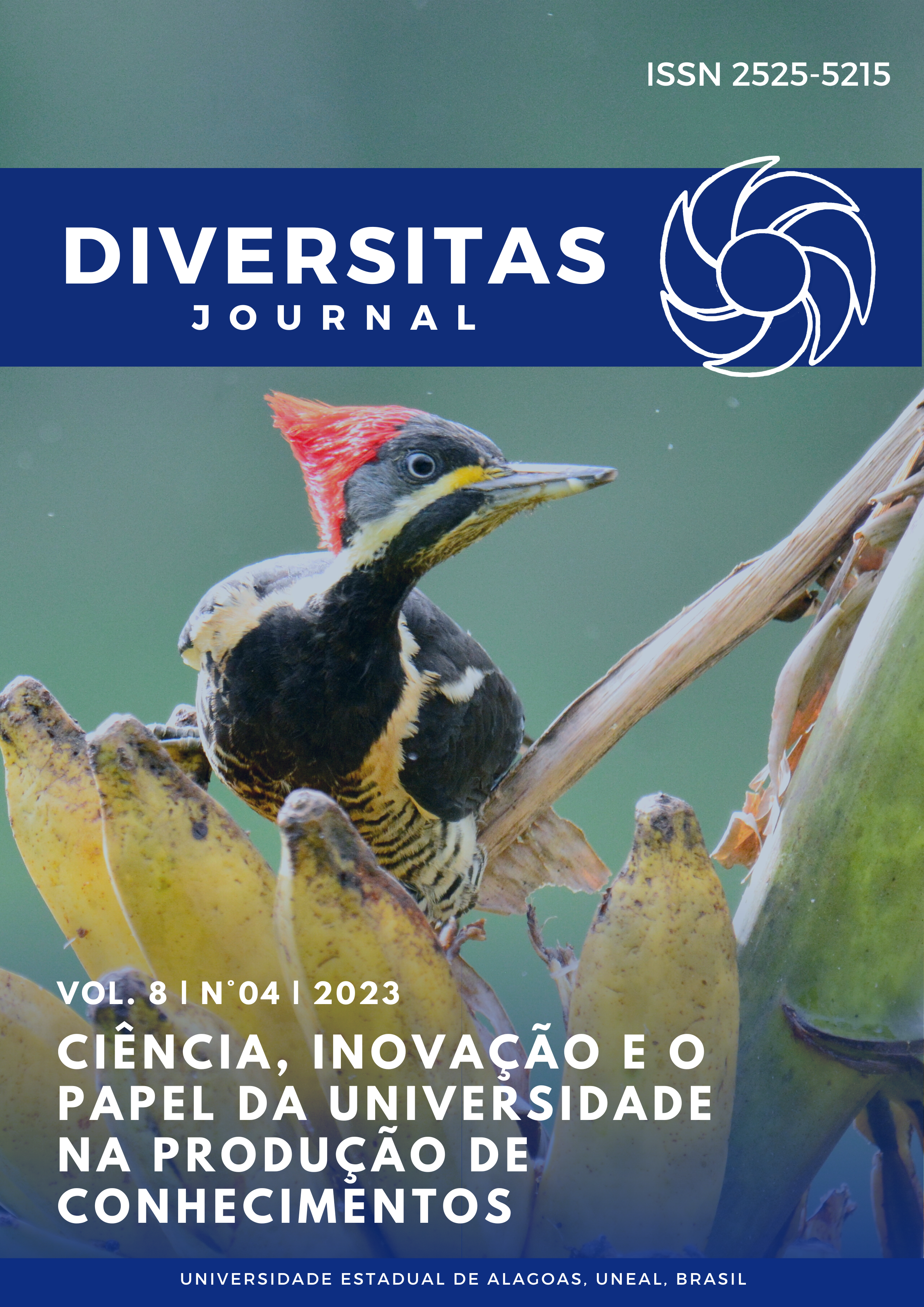Satisfactory, but not enough
Liberalism’s outlooks on the Russian war in Ukraine
DOI:
https://doi.org/10.48017/dj.v8i4.2668Palabras clave:
Liberalism, International Relations, Russia, Ukraine, Liberal DemocracyResumen
The Russian war against Ukraine is an attack on liberal values. This essay bases itself on the critical analysis of few selected exponents and defenders of modern liberalism in International Relations, which recently appeared in some media outlets and academic reviews. It critically engages with this International Relations’ theory and offers the advantages and limitations, interpretations, and outlook on it considering the aggression in Ukraine. Most of all, it discusses the advantages – security concerns, principles of ethics, defence of national independence, spread of democracy – and the disadvantages – security threats, fallacy of trade, geopolitical return of Russia, lack of State-level analysis – liberalism’s spectacles entails. Liberalism is convincing in analyzing the facts and has a good theoretical frame for exploring historical and geopolitical events. However, it risks being too naïve and incomplete in its diagnosis.
Métricas
Citas
Applebaum, Anne (2022). “There is no liberal world order”. From: https://www.theatlantic.com/magazine/archive/2022/05/autocracy-could-destroy-democracy-russia-ukraine/629363/, 31.03.2022.
Brown, Ethan (2022). “Limitations of Liberalism on Display with Ukraine Crisis”. From: https://www.diplomaticourier.com/posts/limitations-of-liberalism-on-display-with-ukraine-crisis, 25.02.2022.
Doyle, Michael (1986). “Liberalism and World Politics”. American Political Science Review, Vol. 80, Num. 4, pp. 1151-1169, DOI: https://doi.org/10.2307/1960861.
Fukuyama, Francis (2022a). “Putin’s war on the liberal order”. From: https://www.ft.com/content/d0331b51-5d0e-4132-9f97-c3f41c7d75b3, 04.03.2022.
Fukuyama, Francis (2022b). “Why Ukraine Will Win”. From: https://www.journalofdemocracy.org/why-ukraine-will-win/, 09.2022.
Gasparini, Amedeo (2021). “Do not forget the Crimean crisis: why Russia ‘Annexed’ the Peninsula? A (pro-) Western-European perception”. Global Affairs, Vol. 7, Num. 3, pp. 405-410, DOI: https://doi.org/10.1080/23340460.2021.1948800.
Keohane, Robert; Martin, Lisa (2003). “Institutional Theory as a Research Program” in Elman, Colin; Fendius Colin, Miriam (Eds.). Progress in International Relations Theory. Cambridge: MIT, pp. 71-107.
Kramer, David J. (2022). “Defeating Putin in Ukraine Is Vital to the Future of Democracy”. From: https://www.journalofdemocracy.org/defeating-putin-in-ukraine-is-vital-to-the-future-of-democracy/, 05.2022.
Makarychev, Andrey (2022). “Russia’s War in Ukraine: A Clash of Two Philosophies of Power”. From: https://carnegieeurope.eu/strategiceurope/86666, 17.03.2022.
Mearsheimer, John J. (2014). “Why the Ukraine Crisis Is the West’s Fault: The Liberal Delusions That Provoked Putin”. From: https://www.foreignaffairs.com/articles/russia-fsu/2014-08-18/why-ukraine-crisis-west-s-fault, 09/10.2014.
Mulligan, William (2022). “Erosions, Ruptures, and the Ending of International Orders: Putin’s Invasion of Ukraine in Historical Perspective”. Society, Vol. 59, pp. 259-267, DOI: https://doi.org/10.1007/s12115-022-00715-x.
Person, Robert; McFaul, Michael (2022). “What Putin Fears Most”. From: https://www.journalofdemocracy.org/what-putin-fears-most/, 22.02.2022.
Stoner, Kathryn (2022). “How Putin’s War in Ukraine Has Ruined Russia”. Journal of Democracy, Vol. 33, Num. 3, pp. 38-44.
Temby, Owen (2015). “What are levels of analysis and what do they contribute to international relations theory?”. Cambridge Review of International Affairs, Vol. 28, Num. 4, pp. 721-742, https://doi.org/10.1080/09557571.2013.831032.
Trachtenberg, Marc (2021). “The United States and the NATO Non-extension Assurances of 1990: New Light on an Old Problem?”. International Security, Vol. 45, Num. 3, pp. 162-203, DOI: https://doi.org/10.1162/isec_a_00395.
Trenin, Dmitri (2021). “What Putin Really Wants in Ukraine: Russia Seeks to Stop NATO’s Expansion, Not to Annex More Territory”. From: https://www.foreignaffairs.com/articles/russia-fsu/2021-12-28/what-putin-really-wants-ukraine, 28.12.2022.
Walt, Stephen M. (2022). “Liberal Illusions Caused the Ukraine Crisis”. From: https://foreignpolicy.com/2022/01/19/ukraine-russia-nato-crisis-liberal-illusions/, 19.01.2022.
Waltz, Kenneth N. (2018 [1959]). Man, the State, and War. New York: Columbia University Press.
Way, Lucan A. (2022). “The Rebirth of the Liberal World Order?”. From: https://www.journalofdemocracy.org/the-rebirth-of-the-liberal-world-order/, 21.03.2022.
Zakaria, Fareed (2022). “Putin’s war reminds us why liberal democracy is worth defending”. From: https://www.washingtonpost.com/opinions/2022/02/24/putin-invasion-ukraine-shows-why-liberal-democracy-worth-defending/, 24.02.2022.
Descargas
Publicado
Cómo citar
Número
Sección
Licencia
Derechos de autor 2023 Amedeo Gasparini

Esta obra está bajo una licencia internacional Creative Commons Atribución 4.0.
O periodico Diversitas Journal expressa que os artigos são de unica responsabilidade dos Autores, conhecedores da legislação Brasileira e internacional. Os artigos são revisados pelos pares e devem ter o cuidado de avisar da possível incidencia de plagiarismo. Contudo o plagio é uma ação incontestavel dos autores. A Diversitas Journal não publicará artigos com indicios de Plagiarismos. Artigos com plagios serão tratados em conformidade com os procedimentos de plagiarismo COPE.
A violação dos direitos autorais constitui crime, previsto no artigo 184, do Código Penal Brasileiro:
“Art. 184 Violar direitos de autor e os que lhe são conexos: Pena – detenção, de 3 (três) meses a 1 (um) ano, ou multa. § 1o Se a violação consistir em reprodução total ou parcial, com intuito de lucro direto ou indireto, por qualquer meio ou processo, de obra intelectual, interpretação, execução ou fonograma, sem autorização expressa do autor, do artista intérprete ou executante, do produtor, conforme o caso, ou de quem os represente: Pena – reclusão, de 2 (dois) a 4 (quatro) anos, e multa.”


















